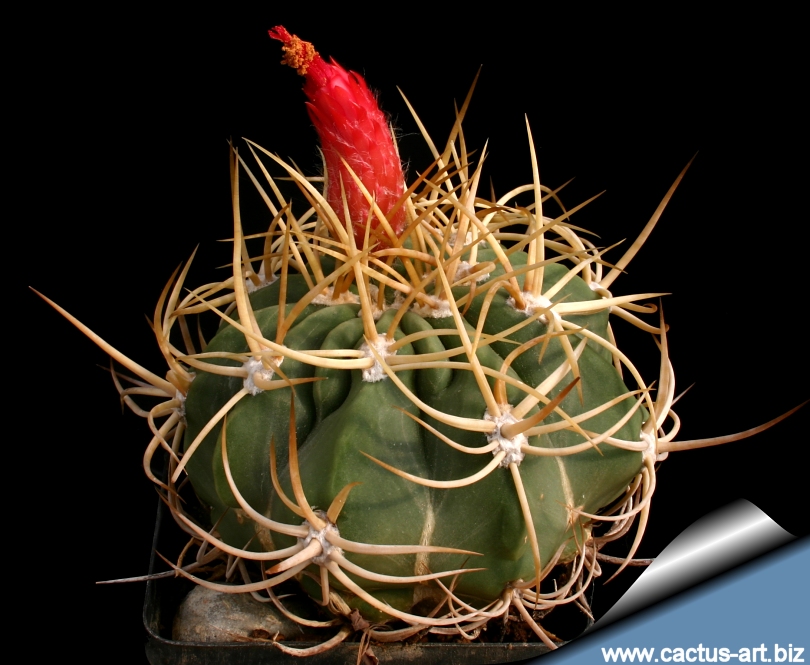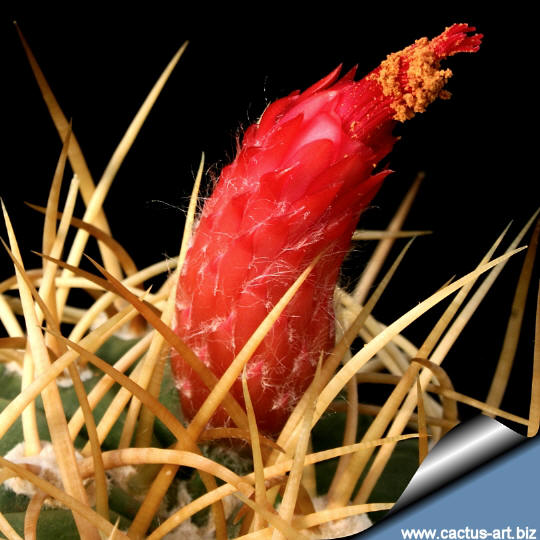|
|
|

Denmoza rhodacantha var diamantina is a fiercely spiny
cactus with impressive and showy ivory or yellowish spines.
The spines shape and colour of this species changes
considerably with age and the old
specimen after many years start producing long white bristle.
Taxonomy: The genus
Denmoza comprises only one species. The plants described as
Pilocereus erythrocephalus and later transferred to Denmoza
has sometimes, for instance by Backeberg, been considered as another
species of the genus. D. rhodacantha changes considerably
in the habit with age. The description of D. rhodacantha
refers to young plants having strong spines in areoles. Old plants of
the same species with multiple number of spines and sometimes with thin,
6 cm long bristly spines correspond to the description of D.
erythrosepala.
|
|
Description: Demnozas grow slowly and stay
globulous during a long period before becoming shortly
column-shaped, 0.5 to 1.5 cm high. The plant's diameter ranges from 15
to 30 cm, the stem colour varies from pale green to dark green, with 15
to 30 ribs. They need to reach a reasonable size in cultivation before
producing their flowers. First flowers appear, however, on plants of
very unequal age and size, some time on relatively young plants but also
on 30-40 years old specimens! Flowers are
zygomorphous, of a maximum length of 7.5 cm, reddish in colour and
have white hair on the tube. The flower open sufficiently widely so that
the stigma and stamen are visible from outside.
Cultivation: D. rhodacantha
is very slow growing cactus but requires no special condition in
cultivation, need full sun and a very draining soil. |
|
Photo of conspecific taxa, varieties, forms and cultivars of
Denmoza
rhodacantha:
Advertising
|
|
|
|
|
Family:
Cactaceae (Cactus
Family)
Scientific name: Denmoza rhodacantha
v. diamantina Slaba,
Published in: Kaktusy, cf. Repert.
Pl. Succ. (I. O. S.), 32 (4): 98-103; 47: 9 (1996 publ. 1997),
1996
Origin:
Mountains in the province of Mendoza (Argentina) of elevation.
Conservation status: Listed in
CITES appendix 2.
Etymology: The name of variety derives from " Rio diamante"
(Diamond river)
in the province of Mendoza.
Synonyms:
- Echinocactus rhodacanthus
- Echinopsis rhodacantha
- Cleistocactus rhodacanthus
|
|
|
|

It has extraordinary scarlet
zygomorphic, tubular flowers.

 |
|